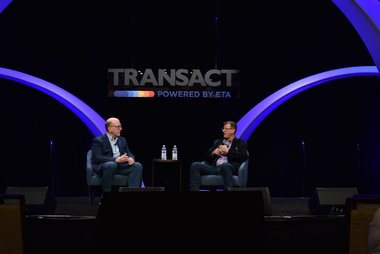
- Four minutes read
How employer brands for fintech companies are evolving
Adapting now to new recruitment models and initiatives is a critical success factor for aspiring tech companies in the coming years
Building international employer brands has never been easy, but the emerging global workforce is presenting us all with some completely new challenges. Adapting now to new recruitment models and initiatives is a critical success factor for aspiring tech companies in the coming years.
In the not very distant past, it was relatively easy for tech companies to attract the talent they needed to build and grow their businesses. While IT and developer skills have long been in short supply, the ongoing promise of options-driven wealth was sufficiently seductive to pull people in and keep them there, at least until their stock vested. Bundle those options up with a suitably generous benefits package and you stood a good chance of creating a team that could grow your business over a good many years, even if you were a large multinational with disparate locations and workforces.
It’s fair to say that this model is no longer as compelling, especially for international brands. A great deal has changed about work in the last decade – remote, flexible and social working, better communication and collaboration tools and much else – but by far the biggest change has been a cultural one. The reality is that the people technology companies need to build their products and scale their company now – smart, talented, innovative professionals with a very wide range of skills – just aren’t interested in dedicating years of their lives to one company anymore.
It’s come as a bit of a shock to many veteran HR professionals to discover that the incoming Millennial workforce are genuinely not interested in committing themselves and their loyalty to our brands.
Nonetheless, that’s where we find ourselves today. The majority of the talented men and women we’re all queuing up to hire want to work for a year or eighteen months before moving onto the next thing. They want their whole salary to be paid in real money, not anything as nebulous as stock, long term incentive programmes, or even a pension. And that’s forcing us all to completely rethink every aspect of our business – not just how we find people or what we use as incentives, but where we physically locate ourselves, how we design our products and services and how we plan for the future.
Paysafe is a perfect example of an organisation facing these challenges. We’ve got 3,000 employees spread across 14 locations, with an average age of around 28. By the very nature of our business it’s a tech-heavy workforce, and we have to work hard to persuade them to come to us rather than go to one of the myriad tech brands competing for their affections – the Amazons, Apples, Facebooks and Googles of the world.
A decade ago, we’d have been thinking about traditional career paths for all of these people, considering them long-term investments and managing their evolution from junior developers to senior management status. This is still very important and the chosen career path for a number of employees, but it isn’t the chosen path for everyone and that is something we need to be aware of and prepare for.
Today, we’re picking and choosing our skills as we need them. We’re designing projects and workflows that can be completed in the shorter time periods that these workers demand, flexing up and down as required. To assess the success of that strategy we have surveyed all of our new joiners during the past 18 months, and in addition to the cultural fit, the ability to add value to projects in this way was a key reason for joining Paysafe.
It’s important that the balance between managing the expectations of these different employee groups is right. The good news from my perspective is that we really are. You might expect that it’s hard to motivate a workforce that sees itself as so ephemeral, but in fact the reverse is true; if you give people interesting enough challenges, it turns out, they really can’t wait to turn up and start doing a good job for you. In some parts of the world, people are even turning up before they have contracts – they can’t wait to start work, simply because the work is so closely attuned to their intellectual needs.
We have some advantages. We’re still relatively small workforce-wise, which is often a stronger proposition than the tech giants for candidates who want to make a difference in the time they’re with us. People have a visible impact in every role, whether they’re working in India or Bulgaria, Montreal or Vienna; the work they do makes a tangible difference, quickly. The philosophy that is the bedrock of our overarching message to current and future employees that by joining us they will have an active role on the frontline of the payments industry: Plug into Paysafe. Make it Happen.
In addition, we have worked hard to create a compelling culture tailored to the values of our current employees and the people we want to attract. It is a culture that emphasises inclusion, collaboration, success, fun and optimism, coupled with flexible working environments and benefits packages. Our state of the art offices which support social and flexible working across Europe and North America also contribute to enhancing the employee experience.
Like most organisations, we’re still wrestling with the implications of the changes I have outlined, many of which are still not yet on our radar. But I think that Paysafe is in pretty good shape as we really start to get to grips with them.
Five years is a long time in tech, and I won’t be remotely surprised if everything changes again, so making predictions for the tech employee landscape looking ahead is difficult. But in all likelihood flexibility and the ability to buy the best solutions from the best people on a project-driven, competency-driven basis, will be key wherever they happen to be.
All I know for sure is that we’re as well placed as anyone to navigate that future, whatever it holds. For potential employees that would like to join us on that journey, we currently have over 400 live vacancies across the Paysafe Group, which can be found on the Paysafe Careers website.




